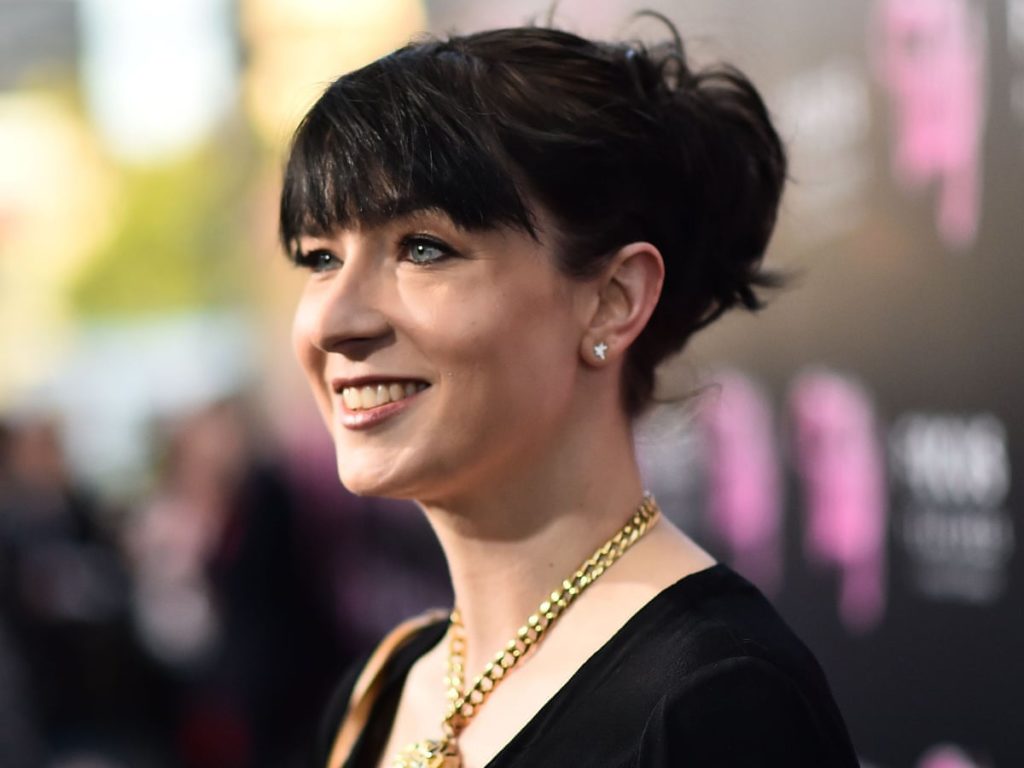By Kathleen Laccinole · August 25, 2021

Most of us have probably gone down a similar path in hopes of getting that foot in the door: Try to make connections with producers, agents, and creative execs through queries, cold calls, blind submissions, and waiting tables at Musso and Frank’s. Upload your screenplays to online databases. Submit your script to awards, festivals, and screenwriting competitions. Or hike Runyon Canyon until your feet fall off hoping to bump into Natalie Portman or Channing Tatum so you can fake twist your ankle and when they stop to help, mention you have a script JUST PERFECT for them.
Suffice to say, this well-worn path rarely takes us anywhere. Rather, it’s usually some sort of unexpected combination of luck, talent, and more luck that makes that big break happen. Just take a look at how these now-famous writers got their big break.
Quentin Tarantino (One Upon a Time in Hollywood, Inglorious Bastards, Kill Bill, Django Unchained, Reservoir Dogs, Pulp Fiction, etc., infinity…) hand-wrote True Romance on a pad of paper while working at the Video Archive, a video store in Hermosa Beach. When he finished it, his co-worker and friend, Roger Avary (Rules of Attraction, Pulp Fiction, Killing Zoe), was the first to read it.
“He not only read it, he typed it up,” Tarantino said. The video store brought him into contact with the film community and from this, he got work as an assistant on a Dolph Lundgren exercise video. From there, he got his first paid writing gig – the script for From Dusk Til Dawn. This got True Romance noticed… and he was given $3 million to write and direct Reservoir Dogs! The rest is, well, you know the rest.

Quentin Tarantino
Diablo Cody (Juno, Jennifer’s, Body, Tully, Young Adult) is best known for her out-of-the-box, Best Original Screenplay Academy Award win for Juno, but her big break was, in fact, packed away in that box for many years.
Chronicling Cody’s time as a full-time stripper, Candy Girl: A Year in the Life of an Unlikely Stripper started off as a blog but ultimately became a memoir. The book caught the eye of Hollywood muckety-mucks, who took an interest in Juno. Cut to, out-of-the-box acceptance speech.

Diablo Cody
Aaron Sorkin (The Trial of the Chicago 7, The Social Network, The West Wing, Moneyball, The American President, A Few Good Men, and on and on, forever and ever, amen.) spent the 80s as a struggling actor in Manhattan, working odd jobs and touring Alabama with a children’s theater troop. He had zero desire to be a writer and was insecure about his intellect.
Then, one day while house-sitting for a friend, he came across an old IBM Selectric and wrote some pages. They were good. A journalist friend asked him to punch up the dialogue of a script he had been given… And the rest is history. “[I] felt a phenomenal confidence and a kind of joy that I had never experienced before in my life.”

Aaron Sorkin
John Ridley (12 Years a Slave, American Crime, Guerrilla) started off as a standup comic in New York City, which helped him land some writing jobs on TV sitcoms like Martin and The Fresh Prince of Bel-Air.
However, it wasn’t until his first novel Stray Dogs failed to sell that he got his foot in the Hollywood screenwriting door. Oliver Stone took notice and wanted to adapt it into a feature, so he and Ridley set to work turning his once failed novel into U Turn.

John Ridley
Allison Anders (Gas Food Lodging, Four Rooms, Mi Vida Loca, Grace of My Heart) is an award-winning film and television writer and director. She graduated from UCLA film school as a struggling single mom and needed money, so she entered the now extinct Nissan Focus Awards.
“I failed miserably, apparently, because they sent me a rejection notice with a list of screenwriting books I might wanna read. In 1986, I submitted to the Samuel Goldwyn Writing Awards and to a brand new contest that year, the Nicholl Fellowship. I won both. The Goldwyn had been around a long time, so there were journalists and agents waiting around to hear who’d won. The Nicholl Fellowship was new, so there wasn’t so much attention around that, but it was quite a juicy prize. At that time, it was $20,000. Everybody wanted to read my script.”

Allison Anders
Vince Gilligan (Breaking Bad, The X-Files, The Lone Gunmen) won the annual Virginia Screenwriting Competition back in 1989. One of the judges was producer Mark Johnson (Rain Man, The Natural) who took an interest and helped set up Gilligan’s script for Wilder Napalm.
It was a massive fail. But Gilligan hung in there. He and Johnson stayed friends and would go on to work together on a little-known series called Breaking Bad.

Bryan Cranston and Vince Gilligan
After graduating from Tisch, Karyn Kusama had a number of odd jobs: editing documentaries, working in production on indie films, painting houses, and nannying. Guess which one lead to her big break. Yeah, it was the nanny gig.
She met filmmaker John Sayles through it, became his assistant, and when the financing of her first feature Girlfight fell through, Sayles came through and financed part of it. The film went on to garner accolades and recognition at Cannes, the Spirit Awards, and Sundance, which helped open the doors for Kusama as a director.

Karyn Kusama
Andrew Kevin Walker (Seven, 8mm, Sleepy Hollow) was working at Tower Records when his career hit.
“I saw Bad Influence, a film David Koepp wrote, and I called him up, spoke to his assistant, and asked if David would read it and if he likes it, will he show it to his agent? David happened to be the nicest guy in the world and called me back the next day. I finished Seven as quickly as I could, sent it to him and he showed it to his agent, Gavin Polone. I remember the day Gavin called me in my tiny New York apartment and said he would represent the script. I literally leaped for joy.”
Inspired by his time spent in New York City trying to make it as a writer, the neo-noir thriller, directed by David Fincher, was the seventh-highest-grossing film of 1995, pulling in over $327 million worldwide.

Andrew Kevin Walker
Karen McCullah Lutz (House Bunny, 10 Things I Hate About You, Legally Blonde) is one of those mythical, out-of-town big breakers, having received hers while living in Denver. She’d been doing various jobs outside of the film business but wanted to get into screenwriting.
So, she sent out query letters to L.A. production companies. One landed on the desk of her future writing partner, Kirsten Smith, at CineTel, who loved her writing. The two met for margaritas and began working on their first script that night… and they haven’t stopped since.

Kirsten Smith and Karen McCullah Lutz with Gerard Butler
Ronald D. Moore (2005’s Battlestar Galactica, Helix, Outlander) was on a tour of the Star Trek: The Next Generation set when he gave a script to one of Gene Roddenberry’s assistants. And get this! The assistant actually gave the script to an agent! Seriously!!! That agent reached out to Moore and, CUT TO: seven months later Moore’s writing for Star Trek: The Next Generation. Yes, Virginia, there are still some kind people in Hollywood.

Ronald D. Moore
The moral of the story is that anything is possible in Hollywood. And just like love, success can hit at any time, anywhere. So, keep your chin up, your eyes open, and creative juices flowing, because you never know when you’ll meet-cute with your big break… and one day I’ll be writing about you.
Inspired by these screenwriter’s success stories? Download their screenplays for free on the TSL Script Library!